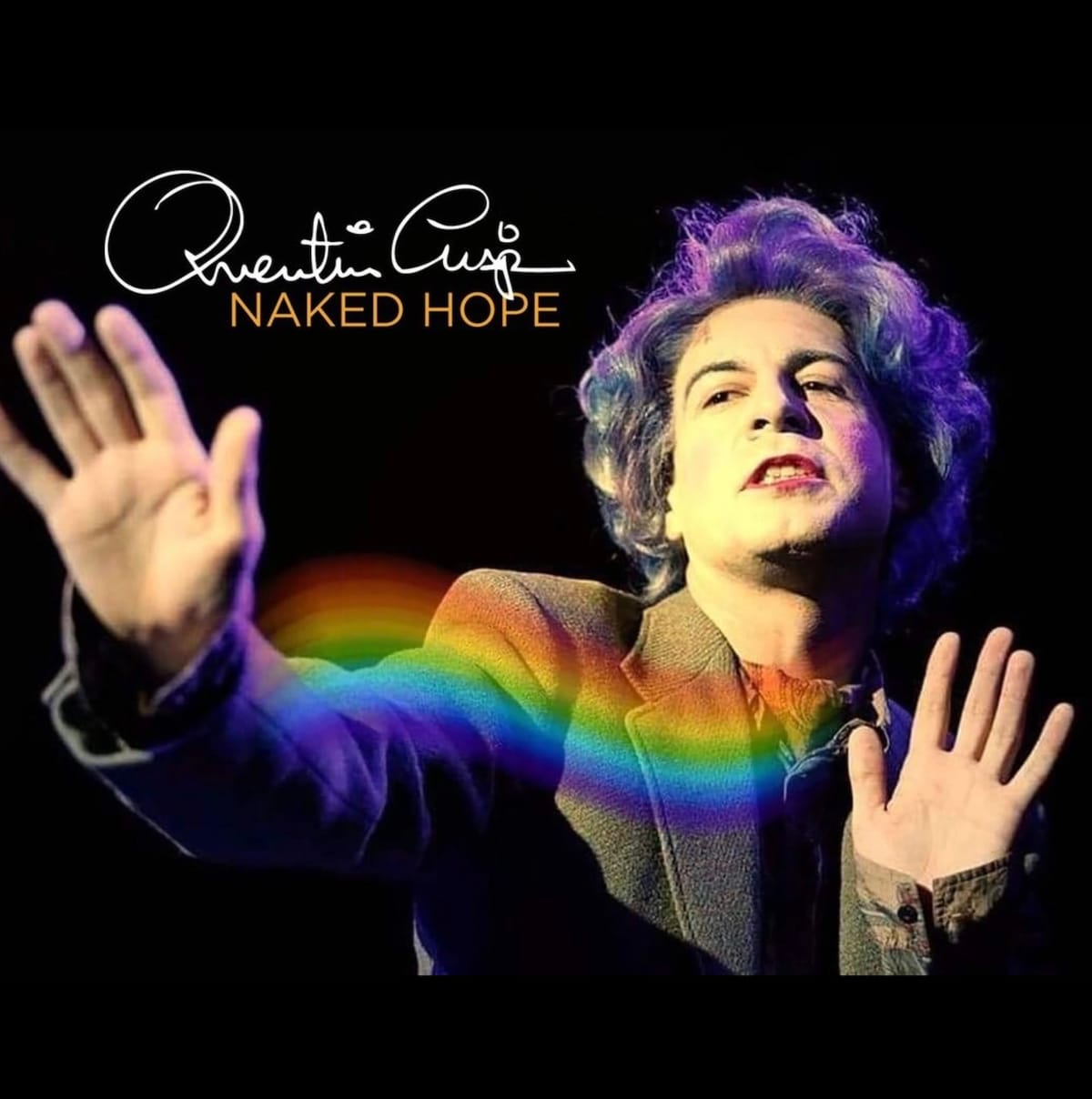REVIEW: Naked Hope

By Gary Murray
Mark Farrelly’s one-man play about the legendary author, writer and raconteur Quentin Crisp was staged last night at Grove Theatre, Eastbourne.
Portraying real people might be daunting but, as in previous performances at the Grove, such as The Silence of Snow: The Life of Patrick Hamilton, and Howerd’s End about the (secret) life of Frankie Howerd, Mark Farrelly demonstrates an uncanny ability to completely inhabit a role. This is no mere impersonation or caricature; this is a fully-rounded human being.
A fairly basic set represents Quentin Crisp’s Chelsea apartment in New York during the 1970s. Here he takes us through the battles of Crisp's early life – the struggles of being flamboyantly gay in 1930s Britain and the inevitable trouble this would bring. A street beating, a regular occurrence, is wincingly portrayed.
The point of such flamboyance, of the colourful clothes and demeanour, was not to shock but simply reflected Crisp’s determination to live life on his own terms.
In 1975, a TV adaptation of Crisp’s autobiography, The Naked Civil Servant, introduced him to a wider audience. It also made a star of John Hurt, to whom Crisp often referred as “my representative on earth”.
The second half of the play places us in a New York theatre of the 1990s. Times have changed. Quentin is embraced more widely. Here Farrelly recreates the one-man shows in which Crisp entertains the audience with his life philosophy. We are very much part of that audience and it’s by turns funny and poignant.
Mark Farrelly had very personal reasons to write and perform this play – ones that he candidly shares with us at the end. Quentin Crisp means a great deal to him, and it shows in a fully rounded performance which appears to capture the essence of a sometimes simple, sometimes complex man.
(Photo credit: Instagram / Grove Theatre)
:: The reviewer paid for their own ticket
:: Independent news outlets like this – a Community Interest Company reporting for the community – are under threat of closure, turning British towns into news deserts.
The audiences they serve know less, understand less, and can do less.
If our news and impartial reviews help you understand our community a little better, please support us with a monthly donation from as little as £1.
Choose the news. Don’t lose the news
[kofi]


